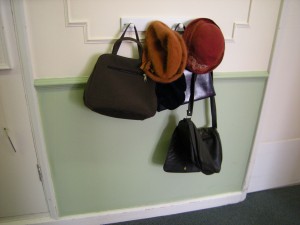
I’m so delighted to hear viewers’ responses to Dementiaville, aired on Channel 4 last evening. It took place in a care home where residents with dementia are cared for sensitively by acknowledging the reality they are experiencing at the moment, instead of trying to confront them with ours.
The approach used was described as the ‘butterfly household model.’ It’s a gentle, compassionate approach that reduces anxiety and promotes wellbeing.
It means that when a frail 80 year old says she needs to go home because her mother will be worried about her, you don’t tell her that her mother died many years ago so she reacts with shock and grief. In ‘Dementiaville,’ carers identified with an old man’s anxiety about his father, but put him at ease by saying was working overtime.
And there’s the challenge for Christians. Is deliberately lying ever acceptable? It’s something we’re asked at conferences and seminars, because this compassionate approach has been around for several years now. It was first described by clinical psychologist Oliver James in ‘Contented Dementia.’ He detailed SPECAL, an approach themed by quietly spoken Penny Garner, a professional carer with some thirty years’ experience.
I described it in 2010 in , ‘Dementia: Frank and Linda’s Story – New understanding, new approaches, new hope.’ The ‘new approaches’ meant the newly defined SPECAL.
At the time, the Alzheimer’s Society vigorously opposed SPECAL. In those days ‘Reality Orientation’ was the norm, which meant it was alright to tell a frail old lady that her husband had died years ago and watch her react with shock and grief time and time again. Negative emotions like these are known to hasten deterioration in people with dementia. Nevertheless, ‘People with dementia deserve not to be lied to!’ declared the Alzheimer’s Society on its website and on posters around the country.
But last evening, the programme ‘Dementiaville’ showed how the SPECAL approach is kinder and achieves better care and wellbeing for dementia sufferers.
So what’s the answer – to lie, or not to lie? There are two ways of looking at it. The first one is that you are entering the dementia sufferer’s world. They are not delusional. In that world they are living the reality of then. It may be 2015 outside, but inside it is 1930. If 80 year old Len asks when his Dad will be coming home from work it is perfectly possible that in 1930 his Dad is working overtime. So if you said, ‘I expect he’s working overtime,’ walking with Len in that inner landscape, would you be lying? Poppy Lodge’s matron manager Jo-Anne Wilson said, ‘We’re not lying to them. We’re on their journey with them.’

But, because we’re Christians, we try to avoid lying to people, without and with dementia. And it isn’t really necessary. For behind every question is an emotion; so you look behind their words and respond to their feelings. For example, Jane is standing in front of her mother, saying goodbye after a long visit. Her mother says, ‘Where is that Jane these days? She never comes to see me?’ Her mother is sensing loneliness as Jane prepares to leave, and a feeling of abandonment that perhaps Jane no longer cares about her. Jane says in response, ‘ Oh Mum! You know that Jane! You know what she’s like! You know she loves you. She’ll be coming again soon!’ We call it deflecting and diverting. It’s recognising the emotion and answering that. Loneliness can be a constant companion for dementia sufferers.
Dementia: Frank and Linda’s story follows the journey with dementia of a real life couple, where Frank develops dementia. Into the narrative are woven strategies for helping and caring. A GP diagnosed with dementia, Dr Jennifer Bute, recommends several publications on her website, but said that it’s the best book to read. – it can be ordered on this website – www.pilgrimsfriend.org.uk.
I’d like to know others’ views on this topic – do leave your comments!















Louise, What is NEW in the REVISED Dementia Info Pack compared with the original one that I bought 2 years ago? May we get photocopies or perhaps buy any of the new one?.
William (Cutting)